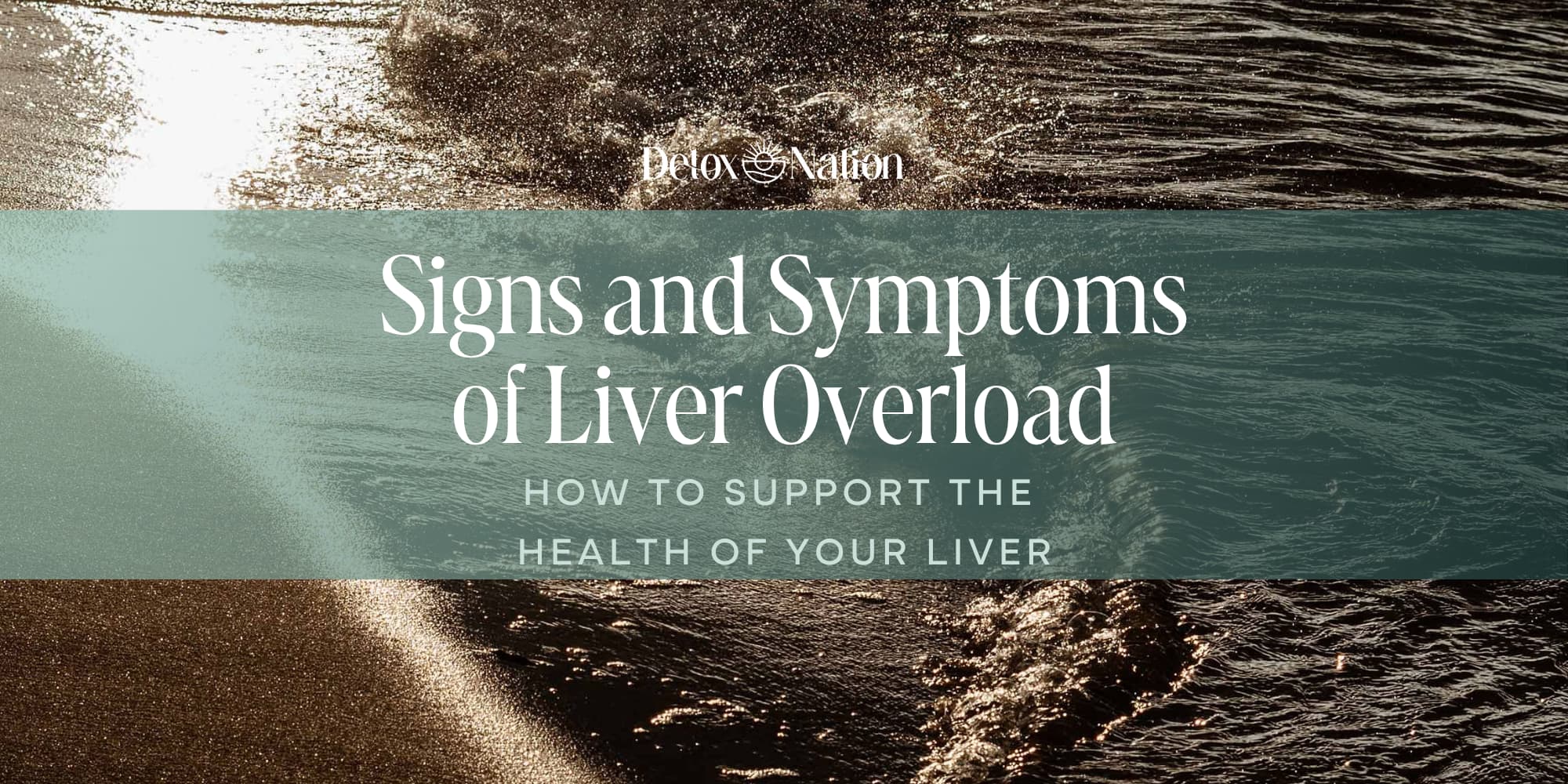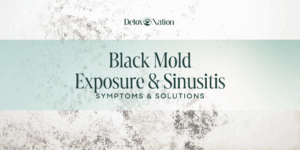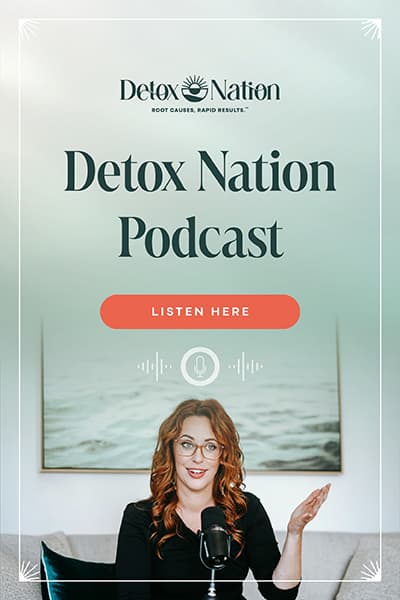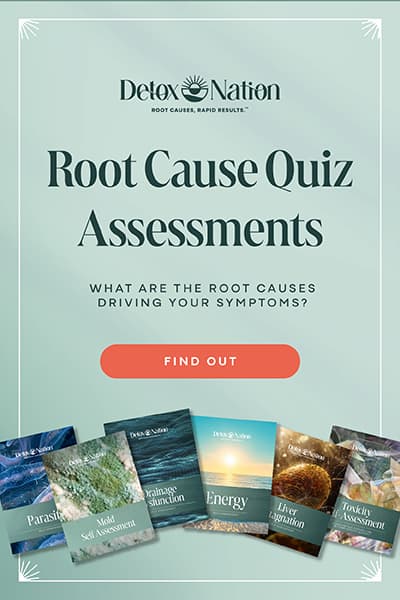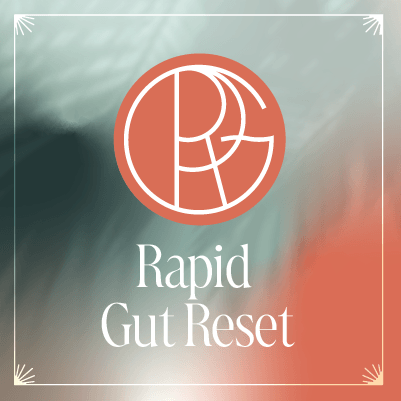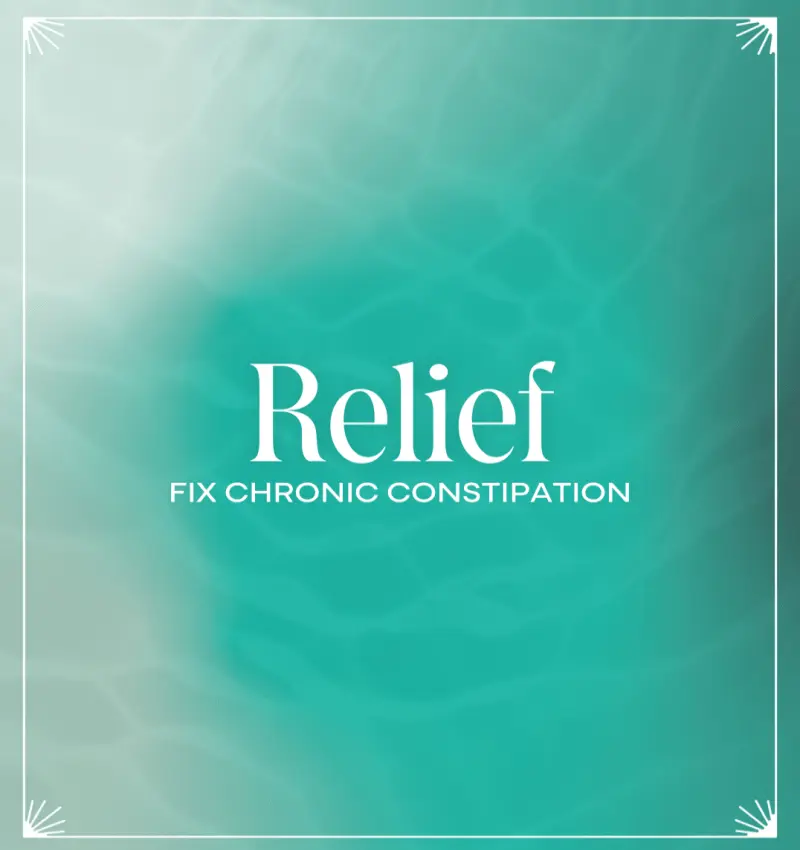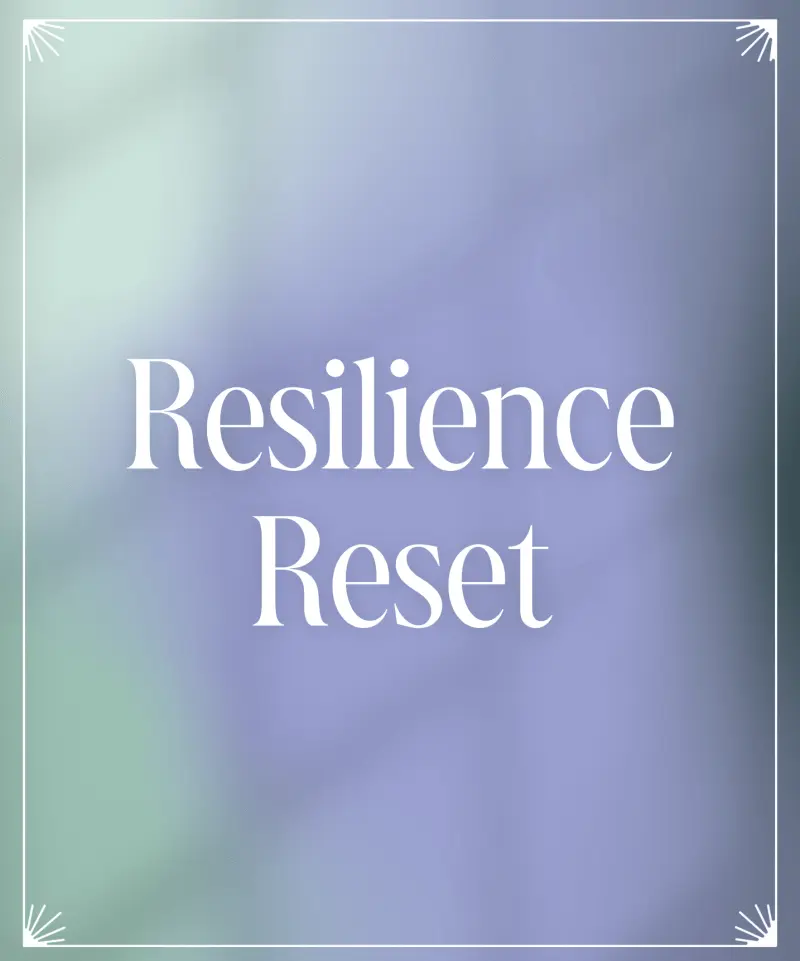Feeling tired all the time, or noticing some changes in your skin? Let’s discuss the signs and symptoms of liver overload.
Your liver is busy.
It performs over 500 functions for you, juggling 200 or more simultaneously. Some of the functions performed by the liver include:
- Assisting with digestion
- Converting hormones for the endocrine system
- Cleansing the blood for the circulatory system
- Processing prescription drugs
- Metabolizing and preparing toxins for excretion
- Clearing viruses and infections with the immune system
An overloaded liver can lead to a multitude of symptoms, including can’t-keep-your-eyes-open fatigue, itchy or blemished skin, digestive issues, jaundice (yellowing of the skin and eyes), abdominal pain, and a variety of subtle (and surprising) issues. This multi-tasking organ is key to detoxification and hormone regulation, so it’s critical to pay attention to any warning signs.
Toxins and chemicals in your environment stress your liver and can lead to more serious conditions like liver disease or liver failure. The good news is, with some knowledge and lifestyle changes, you can help your liver recover and get back to its critical jobs of processing and detoxifying your body.
Key Takeaways
- Your liver works with multiple body systems to coordinate health.
- Overloaded liver symptoms include fatigue, rashes, digestive issues, jaundice, belly pain, and more.
- Toxins and chemicals stress your liver, but recovery is possible.
- Keep reading to learn more about the subtle and surprising health issues that may be coming from your liver!
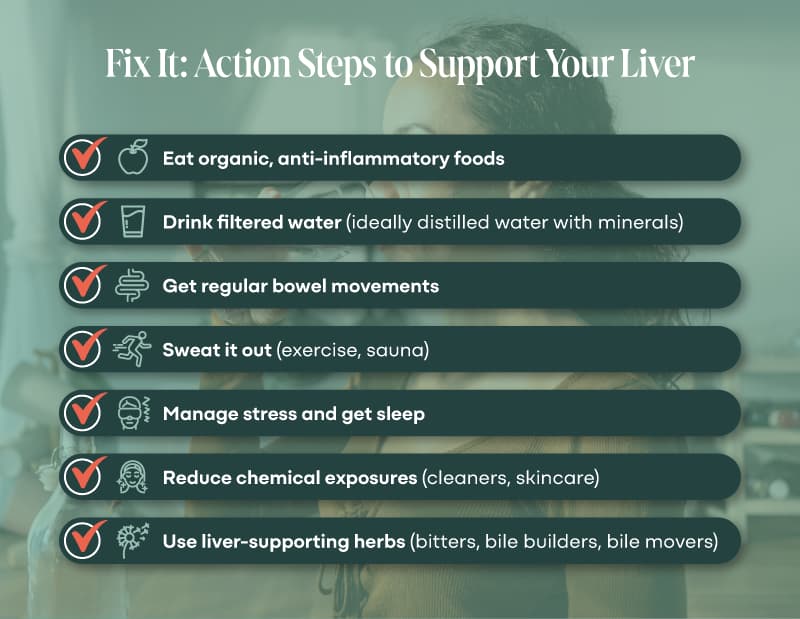
Common Signs and Symptoms of Liver Overload
When your liver is in trouble, symptoms can affect both your appearance and your overall health. Watch out for physical signs and systemic issues that might indicate liver distress.
Physical Signs
Bloating – a feeling like someone pumped up your belly with a bicycle pump – is a common signal that your liver is unhappy.
Are you finding bruises with no clear memory of how you got them? Liver problems can reduce production of clotting factors, leading to easy bruising and bleeding. Pay attention if you notice itchy skin, skin blemishes, or rashes, which can be more signs your liver is overworked.
If left unchecked, liver overload can progress. Later signs and symptoms can include jaundice, which gives your skin and eyes a yellowish tint. This happens because of the buildup of bilirubin. You might also experience dark urine and pale stools. Frequent abdominal pain, especially on the upper right side, can be a painful reminder that something isn’t right.

Systemic Liver Manifestations
When you have liver overload and it is unable to efficiently filter toxins, you may feel tired all the time. You might also deal with nausea or a loss of appetite, making it hard to eat and stay nourished.
Weakness and muscle cramps are common, too. This can happen because your liver isn’t storing and releasing glycogen properly, which is necessary for energy. Experiencing confusion or memory problems can be a sign of toxins affecting the brain.
If my liver is overloaded, is it fixable?
Yes, liver overload can often be fixed with the right care. Join our Rapid Liver Reset to get step-by-step guidance and a supportive community to help you heal your liver.
Join our Rapid Liver ResetGI Symptoms
Digestive or gastrointestinal symptoms are common with an overloaded liver.
Food sensitivities, where foods seem to bother only you, acid reflux, bloating (remember the bicycle pump?), gas, diarrhea, and constipation are all signs.
When your liver can’t keep up with detoxifying the body, waste starts to build up, causing these digestive issues. Most of these symptoms arise because the liver isn’t processing nutrients and waste efficiently. If you notice ongoing digestive problems, it could be linked to liver overload.
But Did You Know About THESE Signs of Liver Overload?
You may have known about the signs and symptoms above, but when your liver is stressed, it can show even more symptoms you might not immediately connect to liver problems. These lesser-known signs can range from hormonal and emotional changes to mental and other symptoms.
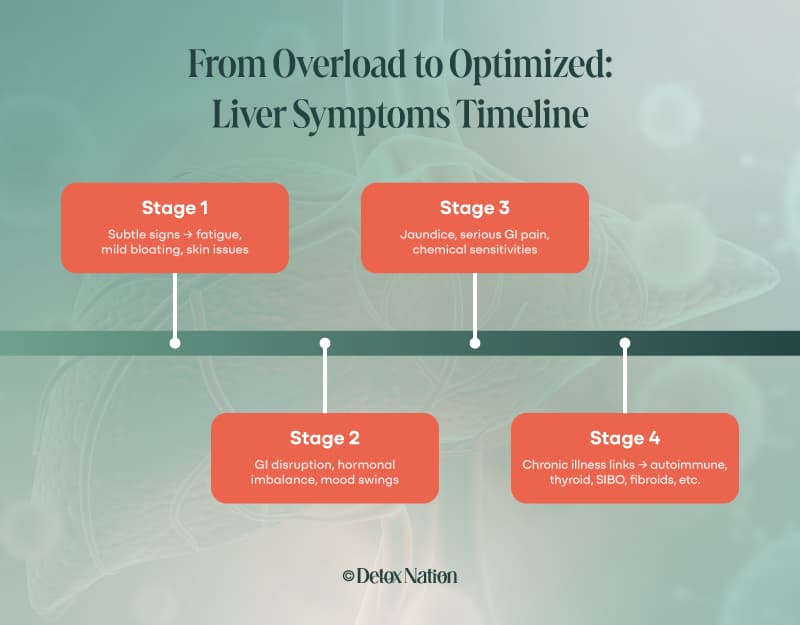
Hormonal Symptoms
You’re not alone if you didn’t know the liver helps break down and remove excess hormones. When it’s overworked, hormones build up in the body. Additional signals indicating your sluggish liver is impacting your hormones include:
- When you take a shower and think more hair is in the drain than is left on your head
- You feel like an out-of-control, raging beast during your cycle
- Your sex drive (libido) is low to non-existent and a source of conflict between you and your partner. (You aren’t “frigid” or “broken” – your liver needs some love!)
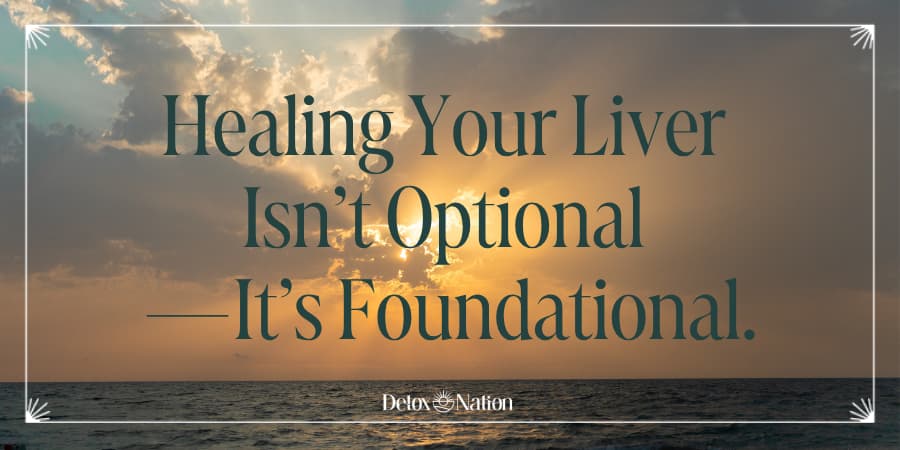
Mental and Emotional Symptoms
Your liver health can affect your mind and emotions.
You might feel brain fog, where you have trouble concentrating or thinking clearly. Dizziness and tinnitus (ringing in the ears) can also be signs.
You may find yourself snapping at your loved ones out of anxiety and overwhelm.
Remember how that person hurt you, and you can’t let it go? Maybe you keep reliving a time of shame, fear, or anger. Or perhaps you wake up to the adrenaline-surge feeling of a pounding heart “for no reason.” These can indicate a nervous system stuck in a loop of fight, flight, or freeze. (This is fixable!)
These issues occur because a stressed liver cannot effectively remove toxins, and this affects everything, including your nervous system.
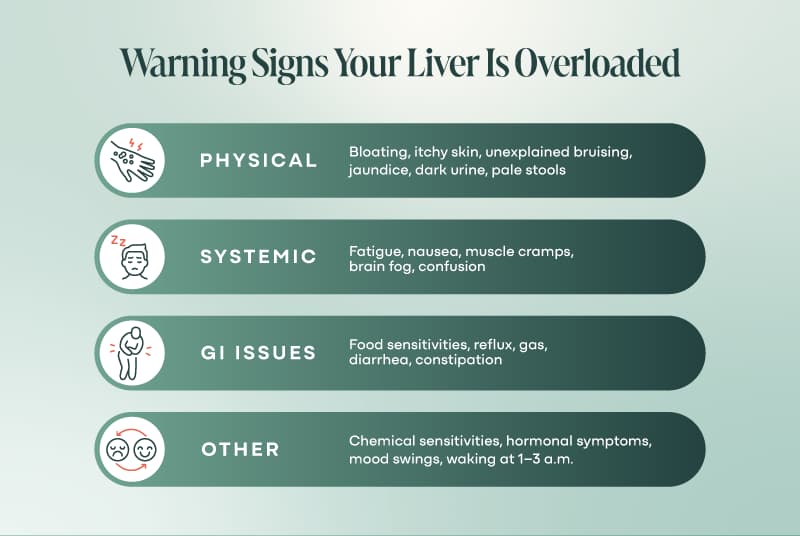
Other Symptoms of Liver Overload
Other signs often include
- Physical changes like blotchy red palms or spider angiomas (small, spider-like blood vessels on the skin).
- Poor metabolism of nutrients, leading to weight issues.
- Disturbed sleep patterns causing you to wake up frequently during the night.
- Impaired immune function, so you seem to catch every single illness.
- Chemical sensitivities, where you’re affected by cleaning agents, perfumes, and other chemicals when no one else is.
Unchecked, liver overload can progress to stagnation, toxicity, and liver disease, and may be related to chronic health challenges such as psoriasis, parasites, osteoporosis, thyroid problems, fibroids, hormonal imbalances, Crohn’s, colitis, blood sugar disorders, heart disease, autoimmune issues, and others.
The health of your liver is critical to the overall health of your body, but many things can interfere with its ability to function properly.
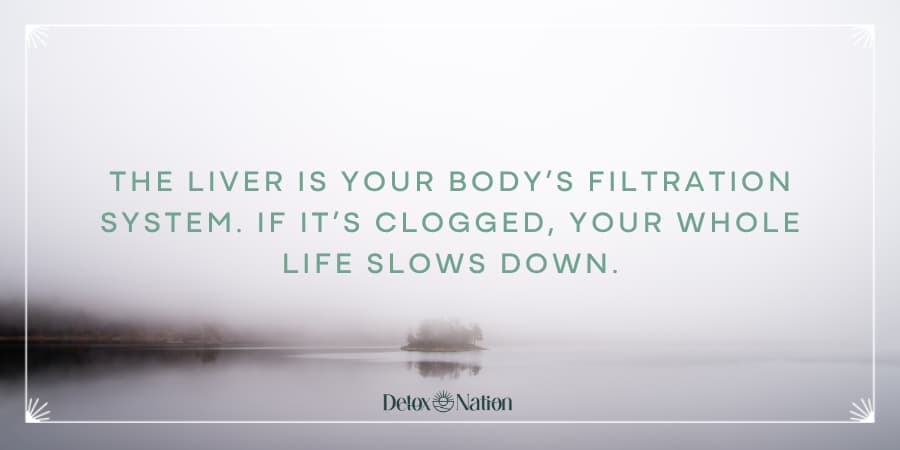
The Impact of Toxins and Chemicals on Your Liver
Your liver is responsible to detoxify harmful substances from your body. Various toxins from pesticides and industrial chemicals can harm liver function.
What is “Toxic Burden” and How Does it Relate to Your Liver?
Your “toxic burden” is the total amount of toxins your body must manage. This includes environmental toxins, food preservatives, stress, hormonal imbalances, gut dysfunction, and chemicals from everyday products. A high toxic burden can overwhelm your liver, contributing to conditions like fatty liver disease. Reducing your toxic load can help your liver work more efficiently, lowering the risk of serious liver conditions.
Toxins: Pesticides, Herbicides, Molds, Metals, & More
You’re exposed to increasing amounts of toxins every day. When these toxins build up, you might develop liver inflammation or other issues. Common sources of toxins are:
- Pesticides and herbicides found in food
- Industrial chemicals like heavy metals—lead, mercury, and cadmium
- Aluminum in your deodorant
- Molds from water damage or in your foods
- Plastics and plastic nanoparticles
- EMFs
- Fluoride and chlorine in the water supply
- Prescription medications in the water supply
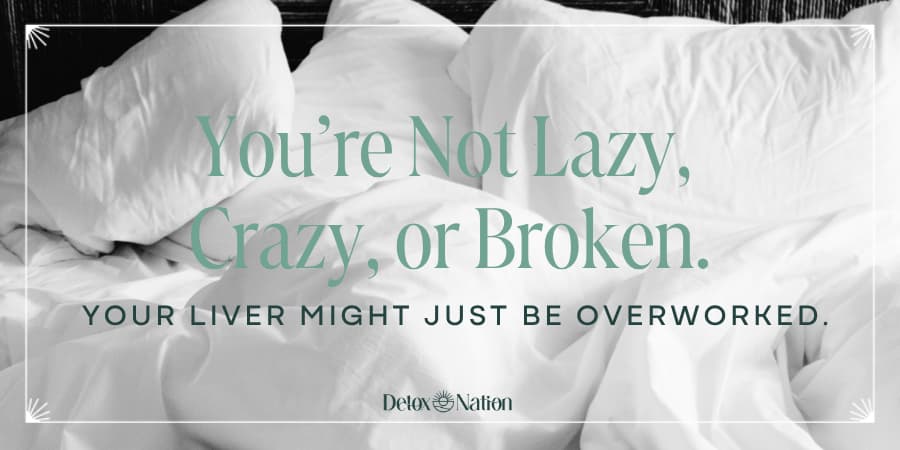
Industrial & Processed Nature of Our Food and Homes
Processed foods and home chemical products contribute significantly to your toxic load. Preservatives, artificial colors and sweeteners, rancid oils, alcohol, and flavor enhancers may disrupt liver function.
Constant exposure to cleaning products and synthetic materials in homes can put extra stress on your liver. These substances can cause fatty liver disease and elevate your toxic burden. This makes it harder for your liver to perform critical tasks.
Lifestyle Factors
Several lifestyle choices can influence liver health.
Alcohol abuse is a leading cause of liver damage, leading to conditions like hepatitis and cirrhosis.
Obesity, a diet high in processed foods, lack of exercise, and high stress also tax the liver.
Even exposure to electromagnetic fields (EMFs) and household mold can affect your liver.
By adopting healthier lifestyle habits, including avoiding alcohol and eating whole foods, you can support better liver function.
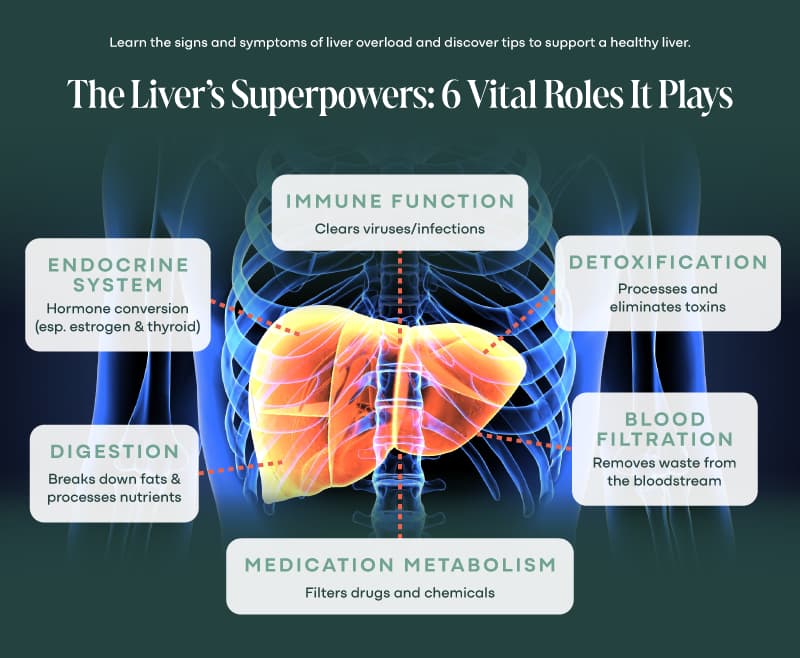
The Good News? It’s Fixable!
While it’s terrible we have to deal with hundreds or thousands of toxins in our modern, industrial world, now you know where the dangers hide. You can help your liver recover by taking certain steps and making lifestyle changes.
But first, I want you to understand how smart your body is and that you have the ability to change your health.
Your Brilliant Body Has the Capacity to Heal
Your body is amazing at repairing itself when given the right things at the right time.
Your liver can even regenerate damaged tissue if given the right support.
By reducing toxins and adopting a healthier lifestyle, you enable the liver to heal. This keeps the liver functioning efficiently, ensuring it can filter toxins, synthesize proteins, and do allll the things it needs to do for your body.
No One Else Can Fix It for You
Taking responsibility for your liver health is crucial. While practitioners can provide guidance, the daily choices you make have the biggest impact. Let’s look at some things you can do to show your liver some love!
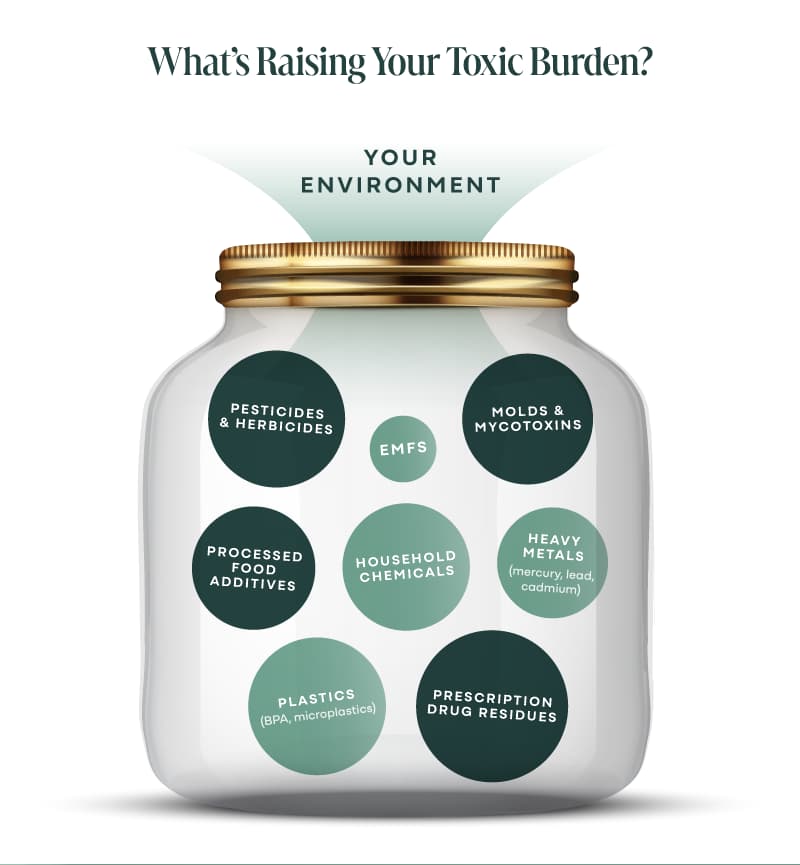
General Tips for Liver Support
This section covers how you can support your liver’s natural healing processes through diet, hydration, detoxification, and more.
Hydrate
Water helps flush out toxins and keeps your body functioning.
Aim for at least 8 glasses of pure, filtered water every day. Infusing water with organic lemon juice can provide additional benefits as lemon supports liver function. Avoid sugary drinks and excessive caffeine.
Open Detox Pathways
Open detox pathways are essential for liver function.
Sweating helps remove toxins through the skin. Engage in physical activities that induce sweating and remove toxins like jogging or using a sauna.
Proper breathing exercises can also help detoxify the body by improving oxygen flow and facilitating the removal of carbon dioxide.

Eat Foods That Support Your Liver
Eating the right foods can boost liver health. Foods rich in antioxidants and fiber help remove toxins and support liver function. Incorporate foods like garlic, beets, and leafy greens into your diet. Avocados, walnuts, and turmeric are also beneficial.
Opt for organic produce when possible to reduce your exposure to harmful pesticides. These foods help protect the liver and improve its functionality.
Food choices impact your liver in multiple ways – good and bad. It’s not your fault if you’ve been misled – the food system is not designed to keep you healthy. I’ve spent decades helping people take back control of their food and their health!
Get Regular!
Regular bowel movements help eliminate toxins and prevent them from re-entering the bloodstream.
Fiber-rich foods like fruits, vegetables, and whole grains promote digestion and regularity. Probiotics, found in yogurt and fermented foods, also support gut health. A clean and efficient digestive system contributes to overall health, making it crucial to prioritize colon care.
If my liver is overloaded, is it fixable?
Yes, liver overload can often be fixed with the right care. Join our Rapid Liver Reset to get step-by-step guidance and a supportive community to help you heal your liver.
Join our Rapid Liver Reset WaitlistAction Steps To Support Your Liver
Here are some action steps you can take to love your liver:
- Adopt a Healthy Diet: Focus on organic fruits, vegetables, whole grains, and lean proteins. Avoid processed foods high in sugar and unhealthy fats.
- Stay Hydrated: Drink plenty of water to help your liver flush out toxins.
- Exercise Regularly: Engage in physical activities that make you sweat, which helps remove toxins.
- Avoid Alcohol and Drugs: These substances put a significant strain on your liver.
- Get Adequate Sleep: Sleep is crucial for the body’s repair processes, including liver regeneration.
- Manage Stress: Stress can negatively impact liver function. Practices like intentional breathing, meditation, and yoga can help.
- Avoid Toxins: Pesticides, herbicides, heavy metals, mold, household cleaners, chemicals, and more contribute to liver overload.
By following these steps, you can significantly improve your liver’s ability to heal and function properly, leading to better overall health and well-being.
Conclusion
It’s never too late to prioritize your health, and your body is on your side. It wants to feel and function well, and it remembers how to heal.
Ready to give your body what it needs? Join our Rapid Liver Reset Waitlist to get started – I can’t wait to cheer you on!
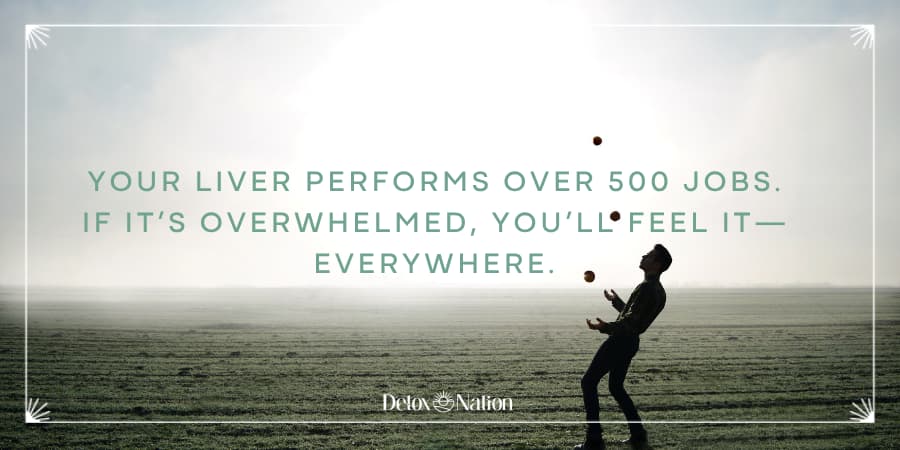
Frequently Asked Questions
Liver overload can lead to serious health problems. Knowing the signs, causes, and ways to support liver health can help protect your well-being.
How can you tell if your liver is inflamed?
Inflamed liver signs often include pain or swelling in the upper right part of your abdomen. You might also notice yellowing of the skin and eyes (jaundice).
What symptoms might women experience if they have liver issues?
Women with liver overload might experience bloating and abdominal pain. Additionally, they could have easy bruising, nausea, and fatigue. Increased PMS, decreased libido, blemishes, and increased irritability are common in women with a stressed liver.
What foods support liver detox?
Foods that support liver detox include leafy greens, garlic, beetroots, and citrus fruits. These foods help your liver flush out toxins and support overall function. Eating a balanced diet rich in these items can promote liver health.
If my liver is overloaded, is it fixable?
Yes, liver overload can often be fixed with the right care. Join our Rapid Liver Reset to get step-by-step guidance and a supportive community to help you heal your liver.

